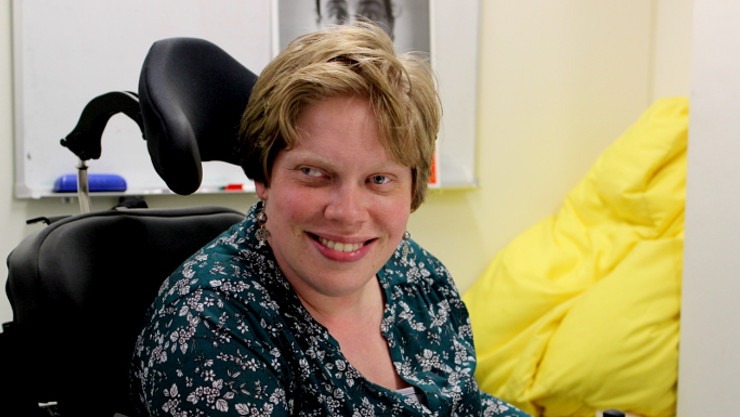
Nothing about us without us
Meet Melanie Schlaeger, a workshop facilitator with Council for Intellectual Disability’s My Choice Matters project.
‘Mel’, who has cerebral palsy, has been a workshop facilitator with us for a number of years now.
From an early age Mel was encouraged to take charge of her own life. She was inspired to join Council for Intellectual Disability to help others with disability take charge of their lives, and to challenge expectations.
“I remember this one workshop,” she says. “I was waiting for everyone to arrive before starting. A parent of a person with disability came into the room and asked ‘Where is the facilitator?’ She had looked around the room and could only see people with disability. The look on her face when I told her I was the facilitator!”
“But after that unfortunate start, she engaged really well in the workshop and asked lots of questions. Afterwards she came up and said ‘Thank you. You made me think about the low expectations I have for my daughter.’ It blew me away that I could change a person’s heart so dramatically, just by being me.”
Nothing about us without us
One of Mel’s favourite quotes is ‘nothing about us without us’, which she first saw used for an International Day of Disabled Persons. The saying has stuck with her ever since.
“This saying has meaning on so many levels,” she says. “There is the obvious meaning that people with disability should be involved in decisions about support services. They should have a voice in disability programs, and control over their choice of services.”
Mel thinks that the NDIS is a move in the right direction.
“Before the NDIS, people with disability would have choices, but these were limited by others. They were told ‘You can have this or you can have that. Which one would you like?’ People could choose, but did not always control what they could choose from. Now, people with disability can create their own menu of choices. That gives them so much more power over their lives.”
“But I think this saying also has a message for support workers, about letting the people they care for truly speak for themselves. This is not always easy, especially if a person is non-verbal.”
“When I have a support worker who I can communicate well with – a person who ‘gets’ me – I feel less frustrated and more in control. Having that connection is so important for gaining ‘choice, voice and control’.”
“It often comes back to support workers letting go of their own assumptions and expectations – like that lady at my workshop. It can take effort, but the rewards are huge.”



 1800 424 065
1800 424 065 














